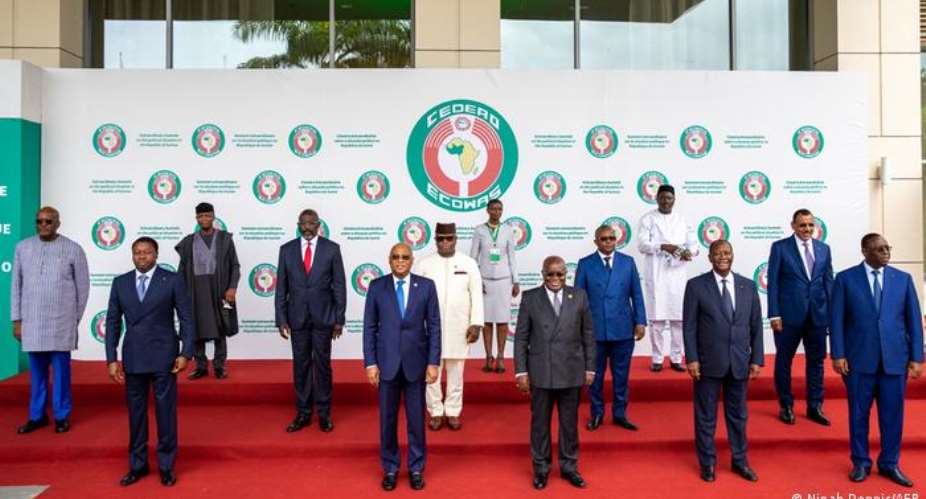The Economic Community of West African States (ECOWAS) has played a pivotal role in promoting regional integration and stability in West Africa. However, its handling of the recent Niger crisis has raised concerns regarding its independence and alleged puppetry to the West. This article seeks to critically analyze whether ECOWAS is acting as a puppet to the West in the midst of the Niger crisis, through an examination of its response and decision-making processes. Ultimately, this analysis seeks to provide a nuanced understanding of ECOWAS' role in the crisis and shed light on the complexities of regional politics.
ECOWAS' response to the Niger crisis should be evaluated through an examination of its decision-making processes, actions, and external influences. While it is true that the West holds significant influence within ECOWAS, attributing the organization's actions solely to external control oversimplifies the complex dynamics at play. ECOWAS is acting in response to the deteriorating political situation in Niger, which involved a military coup and subsequent civil unrest. The regional organization swiftly intervened by suspending Niger's membership and imposing sanctions, demonstrating its commitment to preserving democratic norms within member states.
On the flip side, some critics argue that ECOWAS' response to the Niger crisis is being influenced by Western powers such as France and the United States. While Western powers are exerting pressure on ECOWAS to act, it is crucial to acknowledge that these external actors often align their interests with the principles of democracy and stability. Thus, Western influence does not necessarily negate ECOWAS' independent decision-making capabilities. Additionally, ECOWAS is engaging in extensive diplomatic negotiations whilst utilizing its regional expertise to navigate the crisis. This suggests that the organization is actively pursuing its own agenda while simultaneously considering Western interests.😉
ECOWAS' ability to balance regional and international dynamics is a testament to its independent decision-making capacity. While external actors do exert influence, the organization has historically demonstrated agency in pursuing its own strategic objectives. In the Niger crisis, ECOWAS is seeking to stabilize the region, prevent further coups, and uphold democratic norms. These goals are aligned with the interests of both regional stability and Western powers. However, attributing ECOWAS' actions solely to Western puppetry overlooks the nuanced calculations involved in maintaining regional stability while accommodating external interests.
The accusation that ECOWAS acted as a mere puppet to the West in response to the Niger crisis however oversimplifies the complex dynamics at play. While it is undeniable that the West holds influence within ECOWAS, it is crucial to consider the organization's independent decision-making processes and strategic interests as well. ECOWAS' swift response to the Niger crisis, its imposition of sanctions, and ongoing diplomatic negotiations indicate its commitment to upholding democratic norms and regional stability.Thus, ECOWAS should be seen as an organization capable of navigating the complexities of regional politics, rather than a mere tool of external actors. Further research and analysis are necessary to gain a more comprehensive understanding of ECOWAS' decision-making processes and its evolving role in shaping regional dynamics, albeit the warmongering sloganeering of deploying a military force to oust the Junta and democratically restore Mohammed Bazoum which might not stand the test of time.
Amatus Fomjegeba.





 He proposed marriage to me online while in abroad — Celestine Donkor reveals how...
He proposed marriage to me online while in abroad — Celestine Donkor reveals how...
 Having one hit-song after 20-years makes you worthless of my attention — Strongm...
Having one hit-song after 20-years makes you worthless of my attention — Strongm...
 ‘It was painful, annoying’ — Sister Derby opens up on Medikal and Fella’s relati...
‘It was painful, annoying’ — Sister Derby opens up on Medikal and Fella’s relati...
 It's baseless, without foundation — Lawyer denies allegations of stealing client...
It's baseless, without foundation — Lawyer denies allegations of stealing client...
 You’re son of Gonjaland and you’ve my blessing to be President – Gonja King to B...
You’re son of Gonjaland and you’ve my blessing to be President – Gonja King to B...
 Galamsey: I will involve traditional leaders in granting mining licences – Maham...
Galamsey: I will involve traditional leaders in granting mining licences – Maham...
 We’ll establish joint action team to reclaim destroyed ‘galamsey’ lands – Mahama
We’ll establish joint action team to reclaim destroyed ‘galamsey’ lands – Mahama
 Cecilia Dapaah scandal: She stashed about $1m in her home to make profit when do...
Cecilia Dapaah scandal: She stashed about $1m in her home to make profit when do...
 Bawumia’s claim of cedi performing better under NPP government than Mahama ridic...
Bawumia’s claim of cedi performing better under NPP government than Mahama ridic...
 Henry Quartey has shown that I got him whatever he’s enjoying now – Shiekh IC Qu...
Henry Quartey has shown that I got him whatever he’s enjoying now – Shiekh IC Qu...
